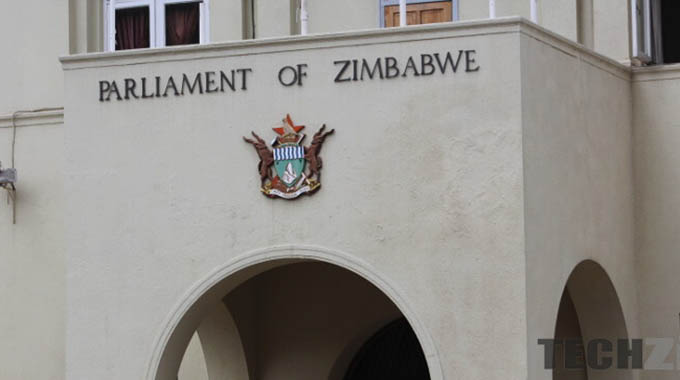Parly suspends public hearings

Zvamaida Murwira Senior Reporter
Parliament has suspended public hearings on the Constitutional Amendment Bill that were supposed to start this weekend, as part of measures to contain the coronavirus pandemic.
The suspension of the public consultations is part of a cocktail of measures adopted by Parliament to curb the spread of the contagious disease, which included suspension of sittings and international travel, among others.
“The public hearings on the Constitution of Zimbabwe Amendment (No 2) Bill scheduled to start at the end of March have been cancelled until further notice.
“The cancellation is part of the measures adopted by Parliament to give effect to the national effort to curb the spread of the Covid-19 coronavirus,” reads a notice from Parliament.
The Constitutional Amendment Bill, which was gazetted in January this year seeks to amend the Constitution as part of reforms being implemented by the Second Republic led by President Mnangagwa.
The portfolio committee on Justice, Legal and Parliamentary Affairs led by Makoni South MP Cde Misheck Mataranyika (Zanu PF) was set to lead the public hearings.
Some of the issues in the Bill include a clause that repeal the concept of running mates, extends the women’s quota in Parliament with another two terms, and extend retirement age for Supreme Court and Constitutional Court judges to 75 years.
Government has indicated that there was need to repeal a clause on running mates saying it was undesirable.
The new clause will allow the President-elect to appoint his two Vice Presidents instead of them being elected.
The clause on women’s quota which was due to end in 2023 will be extended as Government pushes for the empowerment of women.
Public hearings were set to run from March 29 to April 4, 2020.
At least four teams were earmarked for deployment to cover different places, according to a schedule made available by Parliament. After holding the public hearings, the portfolio committee would compile a report to be tabled for debate in Parliament.
The Bill will be passed at its last reading in the National Assembly and the Senate by the affirmative votes of two-thirds of the membership of each House.
When the Bill is presented to the President for assent and signature after being passed, it should be accompanied by a certificate from presiding officers of both the National Assembly and Senate that they had received the affirmative votes of at least two-thirds of its membership.
The Bill is expected to easily sail through given that Zanu-PF enjoys a two third majority in Parliament.








Comments